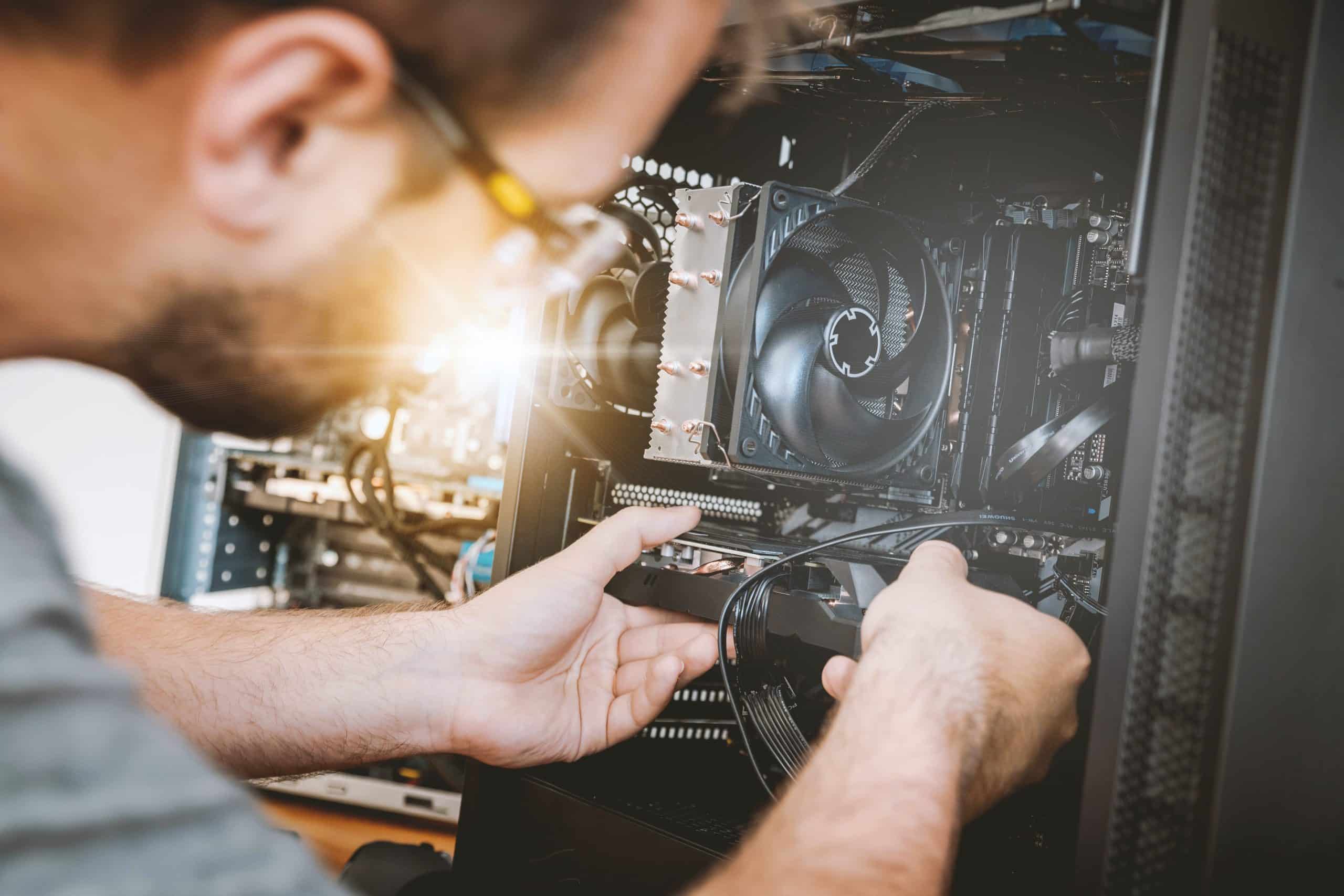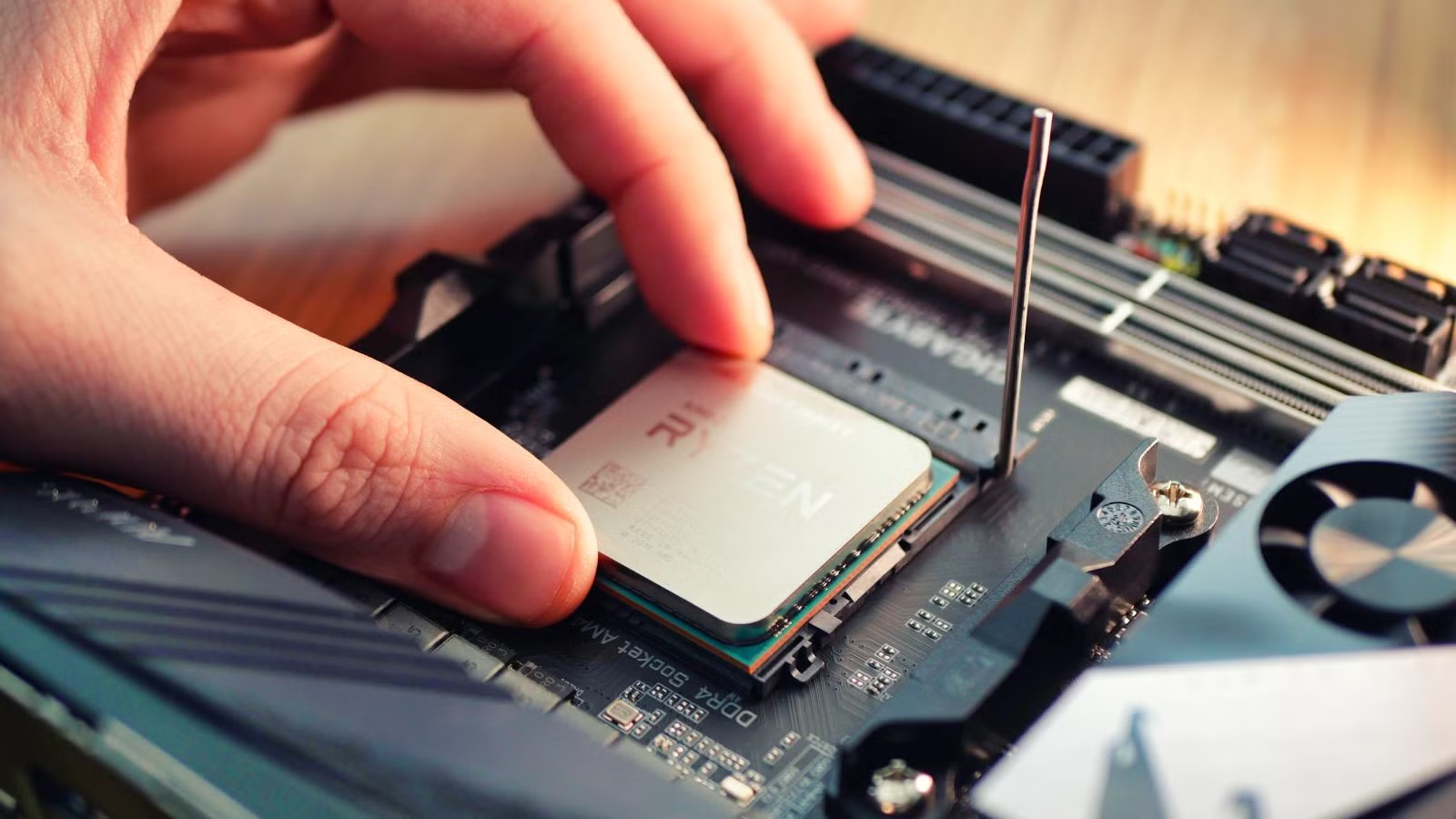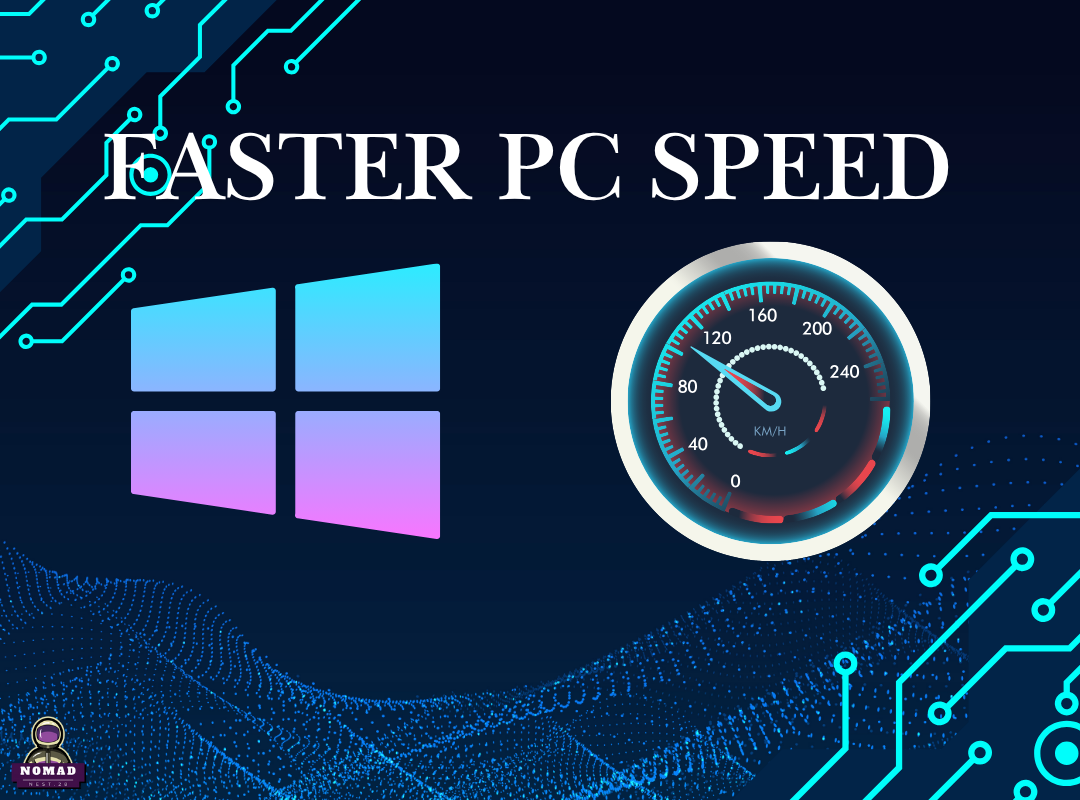Solutions Gamers Slow PCs. Playing games on a slow PC can be one of the most frustrating experiences for any gamer. Lag, stuttering, long loading times, and low FPS can completely ruin the fun. Whether you’re playing competitive eSports titles like Valorant or heavy AAA games such as Cyberpunk 2077, a sluggish PC can make gaming almost impossible.
This guide provides detailed solutions for gamers who have slow PCs, covering optimization tips, hardware upgrade recommendations, and how to choose the right gaming setup for smooth, enjoyable performance.
Understanding Why Your PC Is Slow
Before you jump into buying a new PC, it’s important to understand why your current one is performing poorly. A PC can become slow for several reasons:
1. Outdated Hardware
Most games today demand a powerful CPU, GPU, and sufficient RAM. Solutions Gamers Slow PCs. If your hardware is older than five years, it might not meet the system requirements for modern titles. For example, a game that needs a GTX 1660 Ti may not run well on an older GTX 950.
2. Insufficient RAM or Storage
Running a game with only 4GB-8GB of RAM can cause constant stuttering. Similarly, if your storage is full or still using an HDD instead of an SSD, loading times will be much slower.
3. Overheating Issues
When your CPU or GPU gets too hot, it automatically reduces performance to protect the system. Solutions Gamers Slow PCs. This is called thermal throttling and can cause serious lag during gaming sessions.
4. Software Problems
Too many background programs, viruses, outdated drivers, or unnecessary startup apps can eat up system resources. These software issues are often the easiest to fix before upgrading your hardware.
Optimization Tips Before Buying a New PC

Source: 1radpc.com
Before spending money on a new machine, try these performance optimization steps to boost your current setup.
1. Clean Your System and Free Up Space
- Delete temporary files and unused applications.
- Use tools like Disk Cleanup or CCleaner to remove system junk.
- Keep at least 20% of your storage free for optimal performance.
2. Adjust In-Game Graphics Settings
- Lower resolution (for example, from 1080p to 900p).
- Set texture quality and shadows to “Medium” or “Low.”
- Turn off motion blur and anti-aliasing if unnecessary. Even small changes like these can increase FPS by 20-30%.
3. Close Background Applications
Use Task Manager to check what’s consuming CPU and memory. Close browsers, Discord overlays, and unnecessary background apps before launching your game.
4. Update Drivers and Windows
- Install the latest graphics driver (NVIDIA GeForce Experience or AMD Adrenalin).
- Keep Windows and DirectX updated. Outdated software often causes crashes, low FPS, and stuttering.
5. Improve Cooling and Airflow
If your PC gets hot quickly:
- Clean your fans and remove dust buildup.
- Add an extra cooling fan or use a laptop cooling pad.
- Apply new thermal paste to your CPU if it’s old. Better cooling can increase performance and extend hardware lifespan.
Want more tips like this? Check out our other articles below!! nomadnest28.com/2025/09/13/entry-level-gaming-pc/
Choosing the Right PC Upgrade

Source: pocketlintimages.com
If you’ve already optimized everything and your PC still struggles, it might be time to upgrade your components or buy a new system.
1. Budget/Entry-Level Gaming PC
Ideal for casual gamers who play lighter games such as Valorant, Roblox, or Genshin Impact.
Recommended Specs:
- CPU: AMD Ryzen 5 5600G or Intel Core i5-12400
- GPU: NVIDIA GTX 1650 or AMD RX 6500 XT
- RAM: 16GB DDR4
- Storage: 512GB SSD
- Performance: Smooth 1080p gaming at 60 FPS.
- This build offers excellent value for gamers on a budget and can handle eSports titles easily.
2. Mid-Range Gaming PC
For gamers who play modern AAA games or want a system that can handle the next few years.
Recommended Specs:
- CPU: AMD Ryzen 7 7800X3D or Intel Core i7-13700K
- GPU: NVIDIA RTX 4070 or AMD RX 7800 XT
- RAM: 32GB DDR5
- Storage: 1TB NVMe SSD
- Performance: 1440p gaming at high or ultra settings, up to 120 FPS.
This type of PC offers the best balance between performance and price-perfect for streamers and competitive gamers.
3. High-End Gaming PC
For gamers who want the ultimate performance K gaming, streaming, and heavy multitasking.
Recommended Specs:
- CPU: Intel Core i9-14900K or AMD Ryzen 9 7950X3D
- GPU: NVIDIA RTX 4090 or AMD RX 7900 XTX
- RAM: 64GB DDR5
- Storage: 2TB NVMe SSD
- Performance: Handles any game on ultra settings at 4K resolution.
While this setup is expensive, it’s future-proof for years and ideal for professional gamers or creators.
Additional Tips to Keep Your New PC Fast

Once you upgrade, make sure to maintain your new PC properly so it stays fast and efficient.
1. Keep Drivers and Games Updated
New updates often include optimizations that boost performance and fix bugs.
2. Avoid Installing Unnecessary Programs
Limit your PC to essential apps only-don’t let bloatware slow you down.
3. Regularly Clean Your PC
Physically clean your system every few months to prevent dust buildup that causes overheating.
4. Use SSDs for All Games
Even older games load significantly faster on SSDs compared to traditional HDDs.
5. Monitor Temperature and Performance
Use tools like MSI Afterburner or HWMonitor to track CPU/GPU temperatures. Keeping your system cool ensures consistent FPS.
Conclusion
A slow PC doesn’t mean you have to stop gaming-it just means it’s time for smart adjustments or upgrades. Start by optimizing your current setup: clean your storage, adjust game settings, and update your drivers. If performance still lags, consider upgrading to a Ryzen 5 or i5 entry-level PC for casual gaming or move up to a Ryzen 7 with RTX 4070 for a long-term, high-performance solution.
Investing in the right hardware not only improves your gaming experience but also ensures your PC stays reliable for years. With the right upgrades and regular maintenance, you can enjoy smooth gameplay, faster load times, and zero frustration- exactly how gaming should feel.



